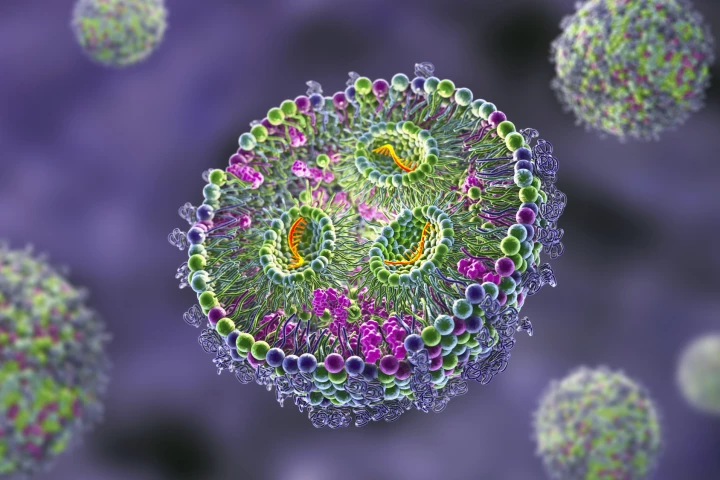UT Southwestern
-
What does gut fermentation and neuroinflammation have in common? A lot, according to new research that uncovers how the post-stroke microbiome directly influences brain health and recovery. It opens the door to new ways of restoring cognitive function.
-
Egg prices have slowly come down, thanks to supply and demand issues leveling out and a reprieve in bird flu outbreaks. But the truth is that the cost is unlikely to stay low. Here's a handy guide to getting all the protein you need – on any budget.
-
Engineered mRNA has turned cells into tiny biofactories, producing medications to successfully treat an inflammatory skin condition and two types of cancer, according to a new study. The tech paves the way for therapies in which patients’ bodies make their own drugs.
-
Clinical trials using orally administered gold nanocrystals to treat multiple sclerosis and Parkinson’s disease have produced promising results. The nanocrystals restore crucial energy metabolites in the brain that are depleted in these conditions.
-
Researchers have identified an efficient and cost-effective two-step screening strategy that, compared to the current one-step approach, more accurately identifies which type 2 diabetics need treatment to prevent life-threatening heart failure.
-
In a feat only a few non-human animals have accomplished so far, a common dark-furred mouse has passed what’s known as the mirror self-recognition test. Backed by supporting genetic cues, this suggests mice can actually recognize themselves.
-
A new study has found that a traditional Chinese medicine reduced complications following a serious heart attack, including future heart attacks, stroke and death, and its benefits can last up to a year.
-
Pancreatic cancer is one of the most deadly forms of the disease, resistant to many treatments. Now, scientists have identified how the tumors protect themselves so well – and more importantly, found a way to potentially bust through those defenses.
-
Researchers have uncovered interesting new details around the function of fat cells, finding that increasing levels of a certain protein could offer protection against diabetes in at-risk individuals, by altering the behavior of white fat cells.
-
For millions of patients with diabetes, daily insulin injections are a necessary nuisance. A once-a-week shot might be more palatable, and new results from phase 2 clinical trials suggest just such a drug is safe and effective.
-
New research led by scientists from UT Southwestern suggests a novel combination of three old antibiotics may be repurposed into an alternative to opiates for a particular kind of nerve pain.
-
One of the most promising emerging cancer therapies is CAR T cell immunotherapy, where a patient’s own immune cells are supercharged to fight tumors. Now researchers have found a way to refresh exhausted immune cells and get them back into battle.
Load More











